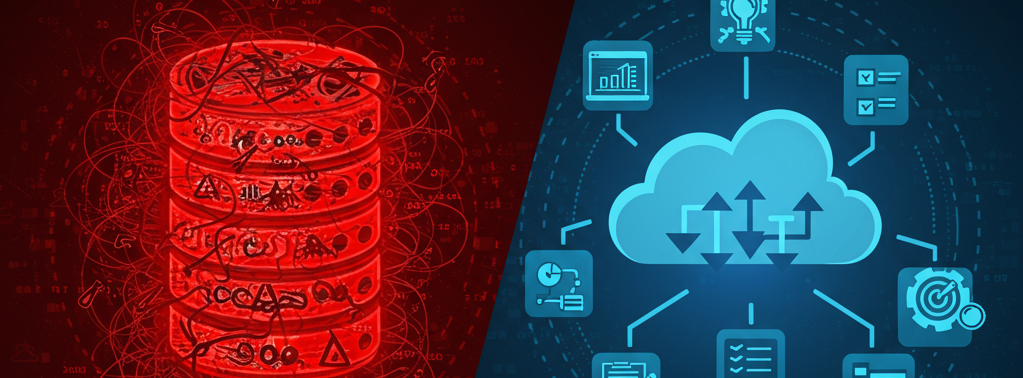Go 1.20’s errors.Join and the Great Unwrap Mystery: A Developer’s Journey
Understanding Go’s error handling evolution and the hidden power of joined errors
Introduction
As a Go developer, I once thought errors.Join would simplify my error handling—until I discovered it silently breaks errors.Unwrap. Let me walk you through this rabbit hole, complete with source code spelunking and a community debate that’s still simmering.
err1 := errors.New("error 1")
err2 := errors.New("error 2")
joined := errors.Join(err1, err2)
// Wait, why is this nil?!
fmt.Println(errors.Unwrap(joined)) // nil
The Three Faces of Go Errors
Go 1.20 introduced three error types that left me baffled:
// 1. For errors.Join(...)
type joinError struct { errs []error }
// 2. For fmt.Errorf with multiple %w verbs (NEW)
type wrapErrors struct { msg string; errs []error }
// 3. Traditional fmt.Errorf("%w", err)
type wrapError struct { msg string; err error }
Why the Complexity?
Russ Cox explains in the Go 2 error handling proposal:
“We made a conscious choice to use explicit error results and explicit error checks to avoid the pitfalls of implicit exception handling.”
But explicit doesn’t always mean simple. Let’s dissect the chaos.
fmt.Errorf’s Hidden Surprise: Multiple %w Verbs (NEW)
You might think fmt.Errorf with multiple %w works like errors.Join:
wrapped := fmt.Errorf("wrapper: %w, %w", err1, err2)
But under the hood, this creates a wrapErrors struct (not joinError). While it preserves error order, errors.Unwrap still fails:
fmt.Println(errors.Unwrap(wrapped)) // nil (same as errors.Join!)
Key Insight:
errors.Join: Flattens errors into a slice.fmt.Errorf("%w, %w"): Preserves hierarchy but still breaksUnwrap.
Why Unwrap Ignores Slices
The errors.Unwrap function only handles single errors:
// go/src/errors/wrap.go (Go 1.20+)
// Source: https://cs.opensource.google/go/go/+/refs/tags/go1.20:src/errors/wrap.go
func Unwrap(err error) error {
u, ok := err.(interface{ Unwrap() error }) // ❌ No slice support!
if !ok {
return nil
}
return u.Unwrap()
}
The Go Team’s Rationale:
- Backward Compatibility: Existing code relies on
Unwrapfor single-error chains. - Explicit Design: Forces developers to handle multi-errors intentionally.
The Community Backlash: Proposal #66455 (NEW)
Developers protested this behavior in GitHub #66455, arguing:
“Unwrap should support slices to simplify error traversal.”
Why the Proposal Was Declined:
- Lack of evidence for widespread issues.
- Concerns about complicating the error interface.
My Take:
While the Go team prioritizes stability, this leaves developers writing boilerplate like:
func UnwrapAll(err error) []error {
switch e := err.(type) {
case interface{ Unwrap() []error }: // joinError/wrapErrors
return e.Unwrap()
case interface{ Unwrap() error }: // Traditional wrapError
return []error{e.Unwrap()}
default:
return nil
}
}
Lessons from the Go 2 Proposal
Russ Cox’s vision for Go 2 error handling clarifies why we’re here:
- Explicit > Implicit: Avoid “invisible” error checks like exceptions.
- Toolability First: Errors must work with static analysis and debugging tools.
- Wrapping Without Breaking: The
errors.Wrapperinterface aims to standardize error chains.
Yet, as Cox admits:
“Existing code must keep working. Any changes must interoperate.”
This explains why Unwrap remains restrictive—backward compatibility trumps convenience.
Best Practices for 2025
Use errors.Join For:
- Flat error aggregation (e.g., batch processing).
- Cases where error hierarchy doesn’t matter.
Use fmt.Errorf For:
- Ordered error wrapping (e.g., contextual chains).
- Compatibility with
errors.Is/errors.As.
Always Test Unwrap Behavior:
func TestJoinUnwrap(t *testing.T) {
joined := errors.Join(errors.New("err1"), errors.New("err2"))
if errors.Unwrap(joined) != nil {
t.Fatal("Unwrap should return nil for joinError!")
}
}
Conclusion: Embrace the Chaos
Go’s error handling is a trade-off:
- Pros: Explicitness, toolability, and no hidden control flow.
- Cons: Boilerplate and confusing edge cases.
Join the Discussion:
- How do you handle multi-errors?
- Should
Unwrapsupport slices? Vote in the comments!




